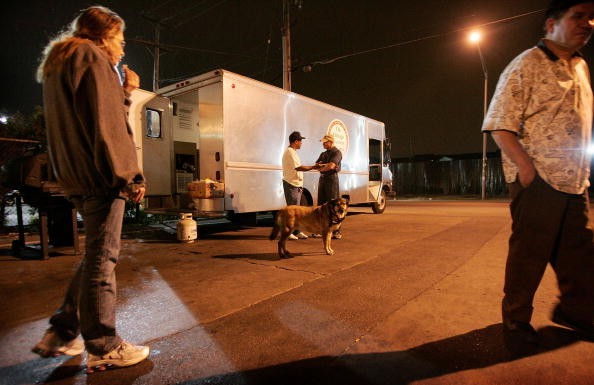
Intravenous drug use has become a scourge in the Midwest and Appalachian states, and has led to surges in new cases of HIV and hepatitis C infections. But Congress has banned the use of federal money to fund needle exchanges for drug users since the 1980s and many states have bans on them.
A needle exchange is where an IV drug user can exchange used needles and syringes for sterile ones. The exchanges have been shown to reduce the spread of blood-borne infections like HIV and hepatitis, as well as other diseases. Both the U.S. Centers for Disease Control and Prevention and the World Health Organization have supported setting up exchanges as a matter of public health. In 2000, the U.S. Surgeon General's office found that needle exchanges could reduce transmission of AIDS and that they also help addicts enter treatment programs.
Most of the bans on exchanges were put into place as part of "get-tough" anti-drug measures. Providing drug addicts with clean needles was seen as condoning or even promoting IV drug abuse. The ban on federal funding was put through in 1988 and has remained in place for the most part since then. The ban extends to funding bleach to sterilize needles.
Even members of Congress in states that have been hard hit by IV drug use, such as Rep. Harold Rogers (R-KY) and Rep. Tom Cole (R-OK), say they would prefer funding drug treatment programs. "As Republicans, we don't want to look like we are facilitating drug use," Cole told the New York Times. Cole noted that he was open to exploring the issue if it comes before Congress again, in light of the expense of treating cases of AIDS and hepatitis C. Many Democrats, like Rep. Rosa DeLauro (D-CT), say that the funding ban should be lifted.
Indiana has a strong policy against creating needle exchanges, but Republican Gov. Mike Pence faced with an enormous outbreak of HIV infections in the southern part of the state. He signed an executive order to allow a temporary needle exchange in Scott County, the epicenter of the outbreak. He has since signed legislation allowing other counties to begin exchanges for public health reasons.
Kentucky has also passed legislation allowing needle exchange programs.



